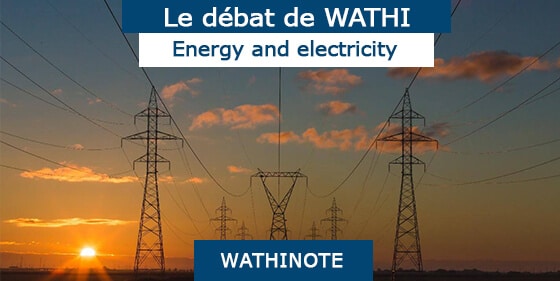

Authors (Auteurs): UNNOPS
Affiliated organization: United Nations Office for Project Services
Type of publication: Press Article (Article de presse)
Date of publication: February 2019
*** For too long, community health centres across rural Sierra Leone have been forced to operate with little access to power. Now, a forward-thinking project aims to strengthen energy infrastructure in these areas, improving essential services for over 300,000 residents. ***
Accessing critical healthcare without a reliable source of power is a hardship that has been an all too common reality for hundreds of thousands of people across Sierra Leone. This put patients at risk and made the jobs of healthcare workers all the more challenging.
In 2014, with the outbreak of Ebola in West Africa, Sierra Leone found itself amid one of the most serious medical emergencies in recent history. More than 14,000 cases were reported in the country between 2014 and 2016, and tragically, almost 4,000 people lost their lives. The lack of power in small towns and villages only worsened the conditions in which medical professionals were trying to combat the outbreak.
Development Projects Increase Access to Electricity
One of the projects developed to support the Government’s energy access objectives is the Rural Renewable Energy Project.
This project aims to strengthen energy infrastructure in order to provide better services to people like Konnie on a day-to-day basis, while also helping rural communities to be better prepared in the event of a future epidemic. The first phase of the four-year project involved the installation of solar power at 54 community health centres across 12 districts of Sierra Leone the benefits of which are already being felt.
Positive Effects on Medical Care
Margaret Albert has been the midwife at the centre for the past four years, after three decades of experience working in other towns around the country. She says that reliable energy has also contributed to a more efficient working environment at the health centres, which ultimately, has enabled more people to receive healthcare.
“The solar light has made a huge difference. Now the cost of buying lamps and batteries is no more and we have 24 hours light, which helps us with their lab work and also our referral system. We are able to charge our scanning machine well and also carry it with us when we go on outreach.”
The Rural Renewable Energy Project brings much-needed electricity to rural areas of Sierra Leone. But it will also provide families, businesses and communities with an opportunity to grow, develop and improve their quality of life in a sustainable way – giving them the power to change for good.
Les Wathinotes sont soit des résumés de publications sélectionnées par WATHI, conformes aux résumés originaux, soit des versions modifiées des résumés originaux, soit des extraits choisis par WATHI compte tenu de leur pertinence par rapport au thème du Débat. Lorsque les publications et leurs résumés ne sont disponibles qu’en français ou en anglais, WATHI se charge de la traduction des extraits choisis dans l’autre langue. Toutes les Wathinotes renvoient aux publications originales et intégrales qui ne sont pas hébergées par le site de WATHI, et sont destinées à promouvoir la lecture de ces documents, fruit du travail de recherche d’universitaires et d’experts.
The Wathinotes are either original abstracts of publications selected by WATHI, modified original summaries or publication quotes selected for their relevance for the theme of the Debate. When publications and abstracts are only available either in French or in English, the translation is done by WATHI. All the Wathinotes link to the original and integral publications that are not hosted on the WATHI website. WATHI participates to the promotion of these documents that have been written by university professors and experts.
